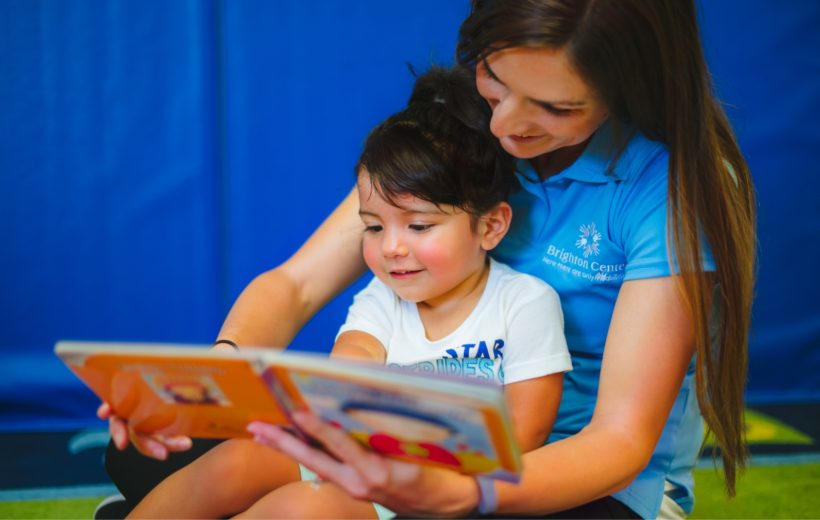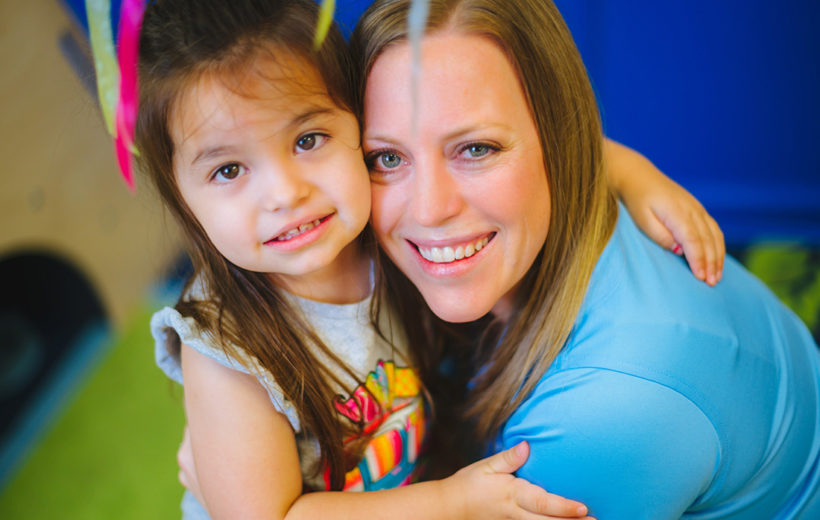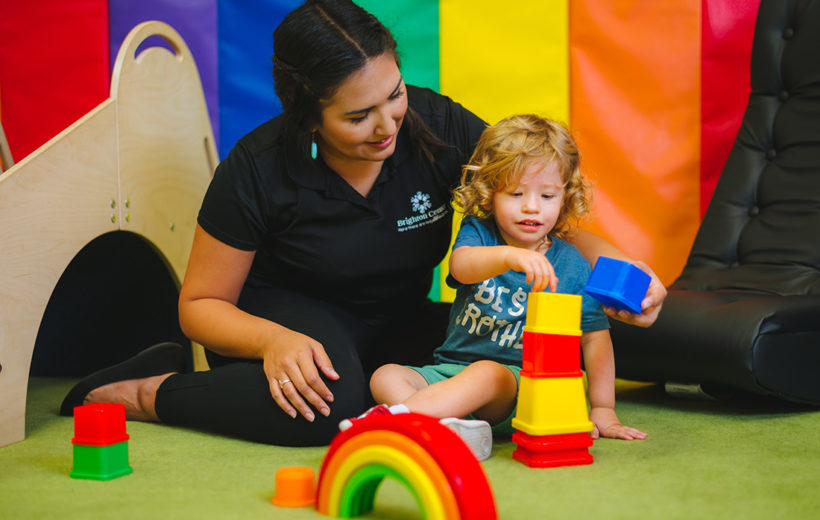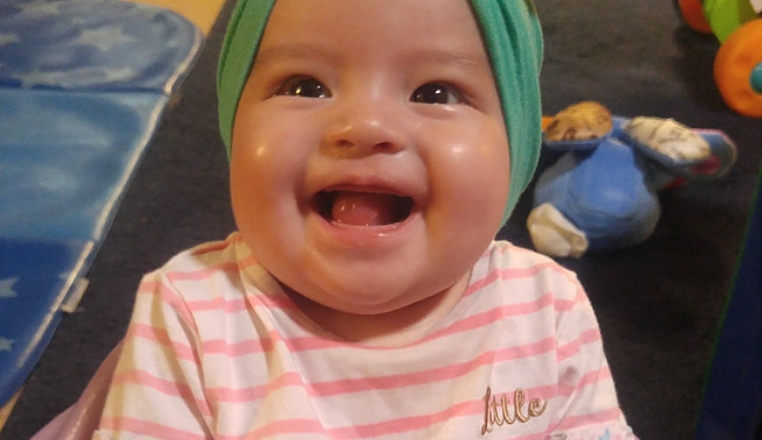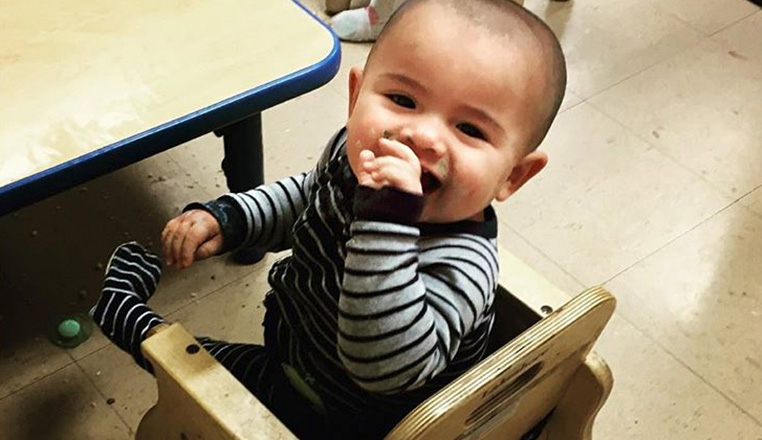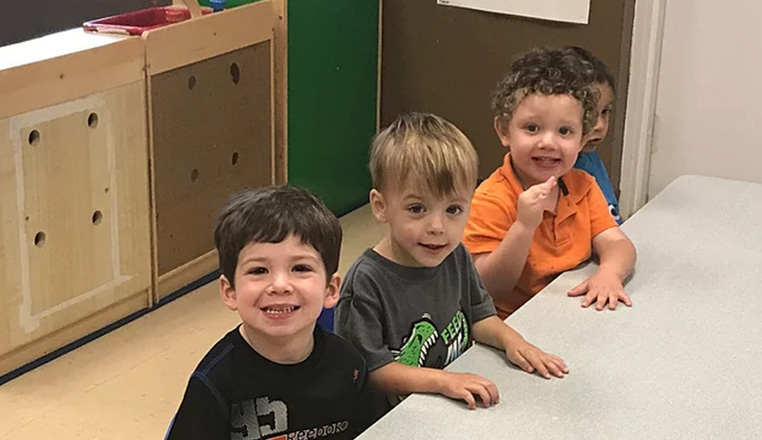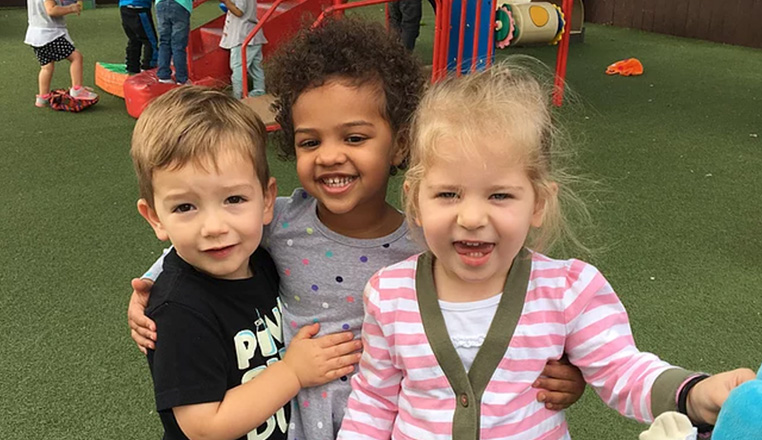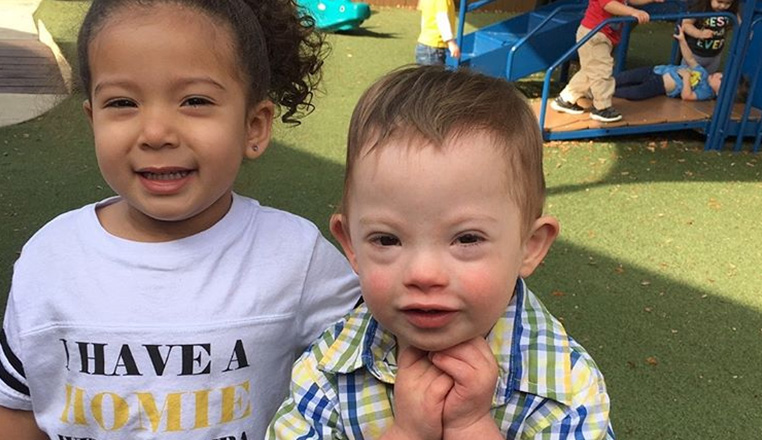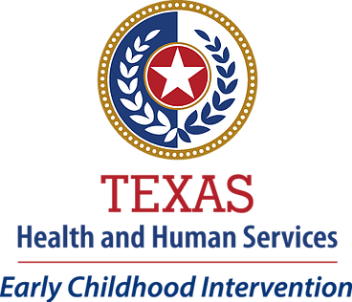- follow moving toys or faces with their eyes
- startle at loud or new sounds
- wiggle and kick with legs and arms
- lift head and shoulders while on stomach
- smile back at parents or other family members
- make sounds, like gurgling, cooing or sucking sounds
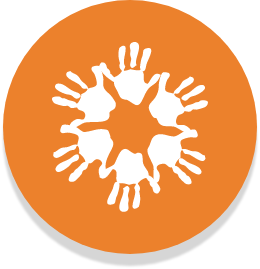
Early Childhood Intervention (ECI) Therapy Services
What Makes Brighton's Therapy Services Different?
Brighton is a non-profit organization committed to providing the educational and developmental foundation that children experiencing developmental delays or a disability in San Antonio and the surrounding area need. As an Early Childhood Intervention (ECI) provider through the State of Texas, Brighton’s team of highly skilled and licensed therapy and early childhood developmental professionals provides a holistic and family-centered approach on development. Through Brighton’s Therapy Service Program, you can rest assured that your child and your entire family will receive the resources, support and guidance that they need to reach their full potential!
Family-Centered Approach
Brighton acknowledges parents are natural teachers and that they know their child best. That is why Brighton’s ECI staff involve the parents and/or caregivers in every aspect of intervention and therapy and teach them how to play an active and daily role in their child’s development.
Early Intervention Specialists (EIS)
Every child enrolled in Brighton’s Therapy Program is assigned an Early Intervention Specialist (EIS) who will coordinate all therapy services, work with the child’s doctors and even connect the family with additional resources in the community based on their individual needs.
Specialized Skills Training (SST)
SST is a unique service provided only by an Early Intervention Specialist. SST supports development across all domains with an emphasis on strengthening cognitive skills, positive behavior and social interactions. These skills are critical to building upon the developmental goals a child’s therapist might be working with them on.
ECI Services for Children and Caregiver Support
Frequently Asked Questions
Developmental Checklist for Children

“Brighton offers families hope, caring, understanding, education and every bit of it is 100% from their hearts. Our daughter has benefited from ALL of the services that Brighton has to offer. They have become like another family to us and they will always be a part of our lives.“
